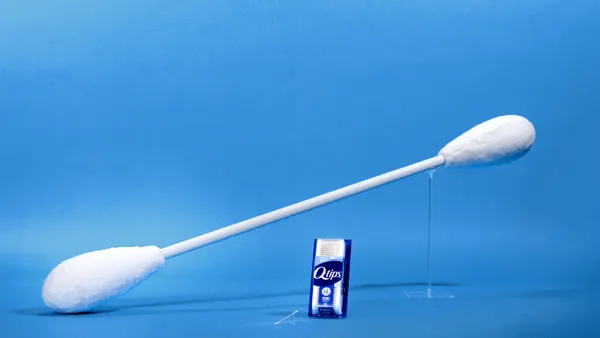Dive Brief:
-
Unilever's Dove partnered with Getty Images and the creative network Girlgaze to create #ShowUs, a stock image library featuring more than 5,000 photographs that are not digitally distorted and were captured by women, non-binary and female-identifying photographers, per a press statement. The library, which aims to diversify depictions of beauty, is available to advertisers and media to view, license and use starting today (March 27).
-
#ShowUs worked with 116 Girlgaze photographers and subjects from across 39 countries to create a more localized, inclusive approach. Of the 179 people photographed for the collection, each was allowed to tailor their own Getty search terms and tags to ensure authenticity. Consumers can also submit their own images to a #ShowUs page hosted by Dove for consideration to be included in the library.
-
#ShowUs stemmed from global research Dove conducted that found 67% of surveyed women want brands to take greater responsibility for the stock images they use in their marketing materials. The study, which Dove claims is one of the largest of its kind to date, also revealed that 70% of women don't feel advertising and media accurately reflect them — a finding supported by a recent sharp uptick in Getty search terms like "real people," "diverse women" and "strong women."
Dive Insight:
Dove has for years centered its marketing around the idea of expanding definitions of "real beauty," but both the brand and parent company Unilever are attempting to extend that initiative to the rest of the industry, including through projects like the Unstereotype Alliance, which #ShowUs is attached to. Opening up a large stock image library that includes more photographs of women, including transgender women, and non-binary people could support marketers' larger efforts to tailor their campaigns to these consumer groups, who are often underserved and underrepresented in advertising.
The timing of the debut of #ShowUs comes at the tail end of Women's History Month and directly follows the rollout of similar initiatives. Vice's Broadly vertical on Tuesday launched a stock photo library called The Gender Specturm Collection that touts more than 180 images of trans and non-binary people. The pictures are available for free public use.
Unilever has ramped up purpose-driven marketing across several of its brands, frequently arguing that what's good for society is good for business. The packaged goods giant has shared statistics that claim unstereotyped ads increase purchase intent by 18% and are viewed as 21% more credible and 16% more relevant to consumers. However, executives at the same time have acknowledged that there's work to be done in terms of achieving comprehensive representation.
"[D]iversity is still practiced in a way that often inadvertently perpetuates stereotypes by painting whole groups as one homogenous entity without accounting for the vast array of sub-cultures." Keith Weed, Unilever's outgoing CMO, previously told Marketing Dive in emailed comments "Understanding and addressing the intersectionality of gender with race, ethnicity, sexuality etc. will be a key action going forwards."
While Unilever helped to lay some of the groundwork for discussions around diversifying depictions of beauty in marketing through brands like Dove, many of the company's legacy competitors and disruptors in the direct-to-consumer space have adopted similar messaging strategies.












